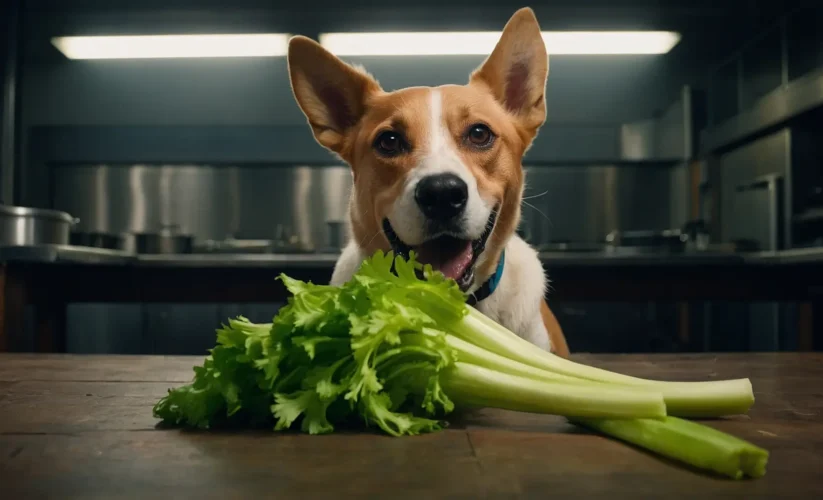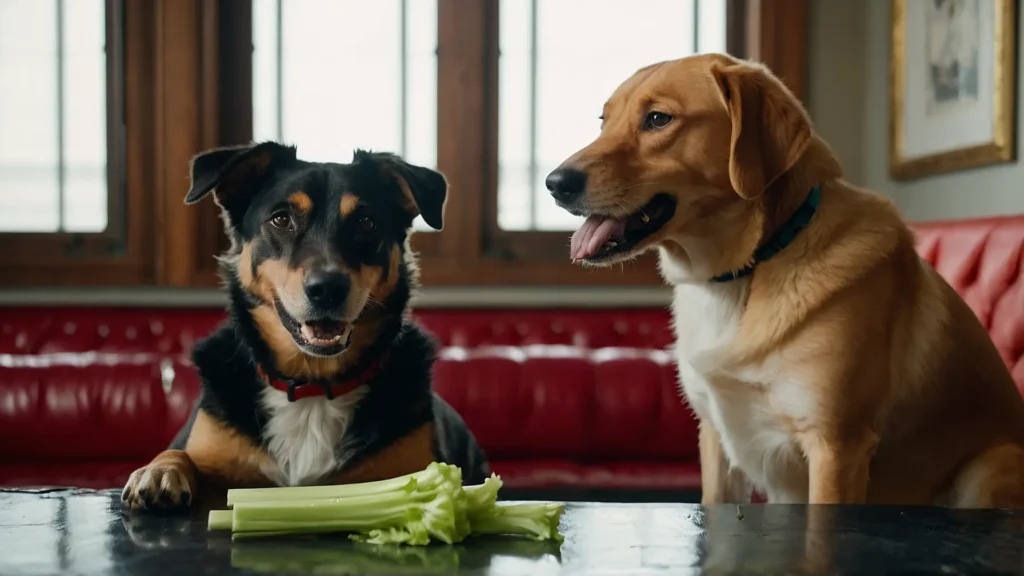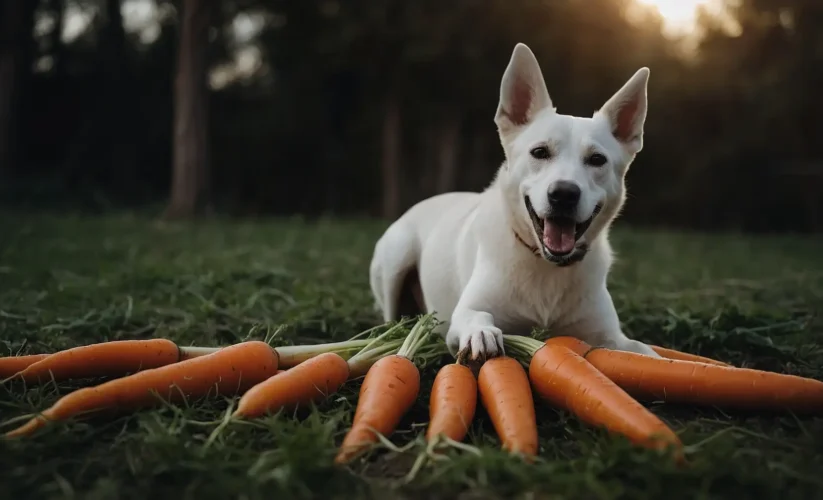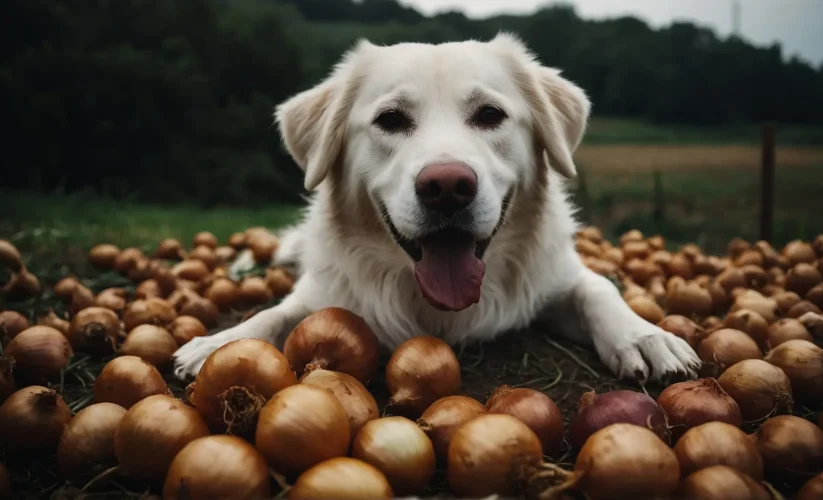Can Dogs Eat Celery?

As a devoted dog owner and experienced dog blogger, I’ve navigated the vast sea of do’s and don’ts when it comes to canine nutrition. One common question that often surfaces among dog owners is whether it’s safe to share human foods, like vegetables, with our furry friends. “Can dogs eat celery?” is a query that pops up frequently due to celery’s crunchy texture and nutritional benefits, making it seem like a good snack option. However, it’s crucial to approach this topic with a balanced understanding of what’s beneficial and what could potentially harm our dogs. This blog post aims to shed light on the question: Can dogs eat celery? We’ll explore the benefits and possible risks of feeding your dog celery and touch upon the safety of other common vegetables like carrots, Brussels sprouts, and broccoli. Our goal is to provide you with informed advice so you can make the best dietary choices for your beloved canine companion.
Is Celery Good for Dogs?
Celery, known for its low-calorie count and high water content, stands out as a healthy snack option for humans. But what about for dogs? The answer is yes, with some considerations. Celery is packed with essential vitamins and minerals such as vitamin A, vitamin C, and vitamin K, as well as folate, potassium, and fiber. These nutrients support various bodily functions in dogs, from maintaining healthy vision and immune system to aiding in digestion.
Moreover, the crunchy texture of celery can be beneficial for your dog’s dental health, helping to clean their teeth as they chew. The high water content also provides a hydrating snack, especially beneficial during hot weather. For dogs on a weight management plan, the low-calorie nature of celery makes it an excellent treat option that doesn’t contribute to weight gain.
However, moderation is key. Introducing celery into your dog’s diet should be done gradually to avoid digestive upset. Small, bite-sized pieces are recommended to prevent choking hazards, especially for smaller dogs.
Is Celery Bad for Dogs?
While celery can be a healthy addition to your dog’s diet, there are potential downsides to consider. The primary concern is the choking risk it poses, particularly with whole celery stalks. It’s essential to chop celery into manageable, bite-sized pieces to mitigate this risk.

Furthermore, some dogs might have sensitive digestive systems that react poorly to celery. Symptoms of digestive distress include diarrhea, vomiting, or excessive gas. If you notice any of these symptoms after introducing celery, it’s advisable to eliminate it from their diet and consult with your veterinarian.
Another consideration is the pesticide residue that can be present on celery, as it’s often listed among the vegetables with high pesticide levels. Washing celery thoroughly or opting for organic options can help reduce this risk.
Are Other Vegetables Like Carrots, Brussels Sprouts, and Broccoli Safe for Dogs?
Diversifying your dog’s diet with vegetables can provide additional nutrients and variety. Like celery, carrots, Brussels sprouts, and broccoli are generally safe for dogs when prepared correctly.
Carrots are another low-calorie, high-fiber snack that many dogs enjoy. Their hard texture can help with dental health, similar to celery. However, carrots should be given in moderation due to their sugar content.
Brussels sprouts are rich in vitamins and antioxidants but can cause gas in some dogs. It’s best to introduce them slowly and in small quantities to monitor how your dog reacts.
Broccoli is safe for dogs in small amounts, as it’s high in fiber and vitamin C. However, the florets contain isothiocyanates, which can cause gastric irritation in some dogs if consumed in large quantities. The stalks can also pose a choking hazard and should be cut into bite-sized pieces.
When introducing any new food to your dog’s diet, it’s crucial to do so gradually and observe their reaction. What works for one dog may not work for another, and moderation is always key.
Final Thoughts
Incorporating vegetables like celery, carrots, Brussels sprouts, and broccoli into your dog’s diet can offer health benefits and add variety to their meals. However, it’s important to approach this with caution and awareness of the potential risks. Always prioritize safety by preparing vegetables in a dog-friendly manner and observing your dog’s reaction to new foods.
Remember, while these vegetables can be a healthy part of your dog’s diet, they should not replace their regular, balanced dog food. If you have any concerns or questions about feeding your dog these or any other vegetables, consulting with a veterinarian is always the best course of action. Ultimately, understanding your dog’s nutritional needs and how different foods affect them is key to ensuring they lead a happy, healthy life.










